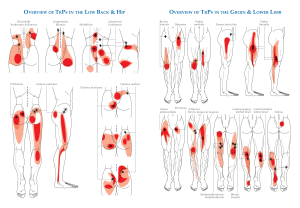Spinal Cord Injuries May Lead To Muscle Wasting

Category: | Author:
out of The Ohio State University suggests that a spinal cord injury may trigger muscle wasting in patients, causing them to lose more weight and muscle mass than can be explained solely by their paralysis.
Researchers say that the muscle wasting can be quick and severe, and they believe that it is linked to a hormonal issue following the injury. The team believes that injuries to a person’s upper spinal cord may affect their adrenal glands’ ability to receive nerve signals. If the adrenal glands aren’t functioning properly, the body can become inundated with an excess amount of cortisol – the stress hormone.
“This hypercortisolism then acts on specific receptors in the muscle of the entire body to cause muscle loss,” said lead researcher Markus Harrigan.
Increased Death Risk
Researchers also believe that the findings may explain why relatively thin patients have a much higher risk of death following a spinal cord injury.
“With a better understanding of this muscle wasting and aggravated weight loss, we hope to explore new ways to reduce deaths in this fragile patient population,” said Dr. Jan Schwab, a professor of neurology at the Ohio State University College of Medicine. “We now start to understand how an injury of the spinal cord leads to spinal cord disease affecting the entire body.”
The team’s research was published in the Dec. 20 issue of Science Translational Medicine, and it builds on previous research on the effects of a spinal cord injury on a person’s immune system.
The team noted that their research was conducted on mice, not humans, and findings don’t always translate perfectly across species. Even so, Schwab and his team plan to use future studies to search for new ways to protect the adrenal glands following a spinal cord injury so that they can continue functioning properly and avoid an influx of cortisol and muscle loss.
So while the jury is still out on whether or not a spinal cord injury could lead to major issues with a person’s adrenal glands, it does speak to the incredibly complex nature of spinal cord injuries. You’ll likely undergo months of physical therapy as you work to regain as much strength and function in your body as possible following a spinal cord injury, but it’s possible that these exercises can also help by ensuring that you maintain weight and muscle mass.
We hope that you never need to deal with the aftermath of a severe spinal cord injury, but Dr. Sinicropi and the team at The Midwest Spine & Brain Institute are here to help in any way we can. We’ve helped tens of thousands of patients overcome their back issues, and we’d be happy to help you work to manage whatever condition or injury you’re facing. For more information about spinal cord injuries and care, or for help with a different spinal condition, pick up the phone and give the team at The Midwest Spine & Brain Institute a call today at (651) 430-3800.
Related




